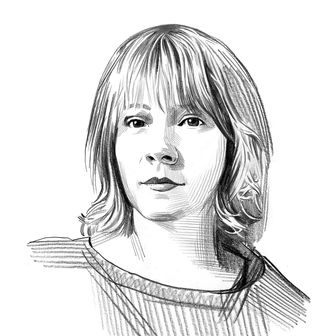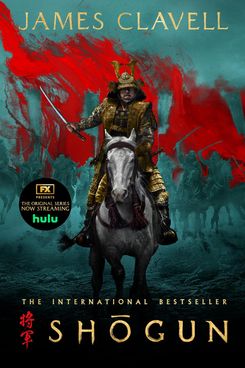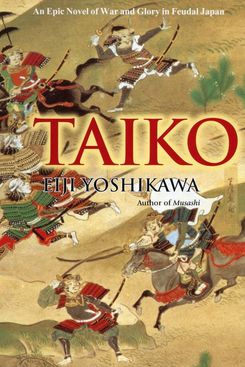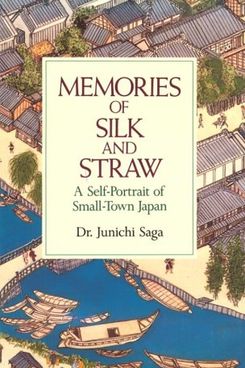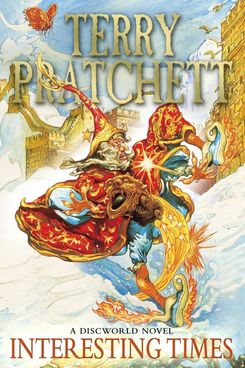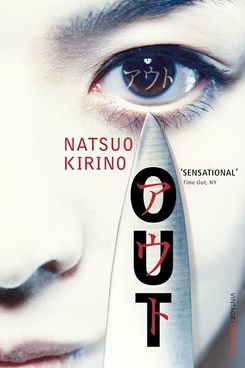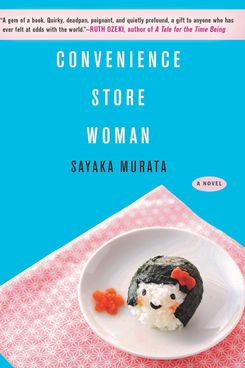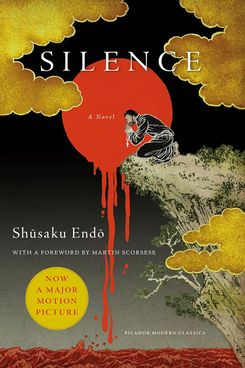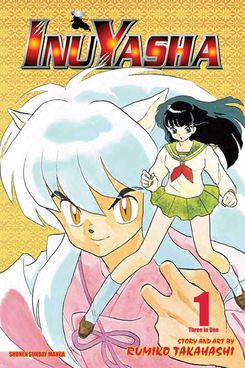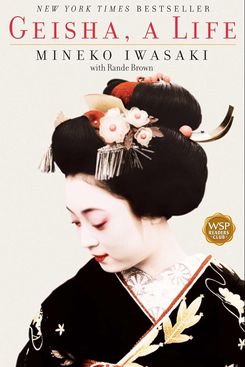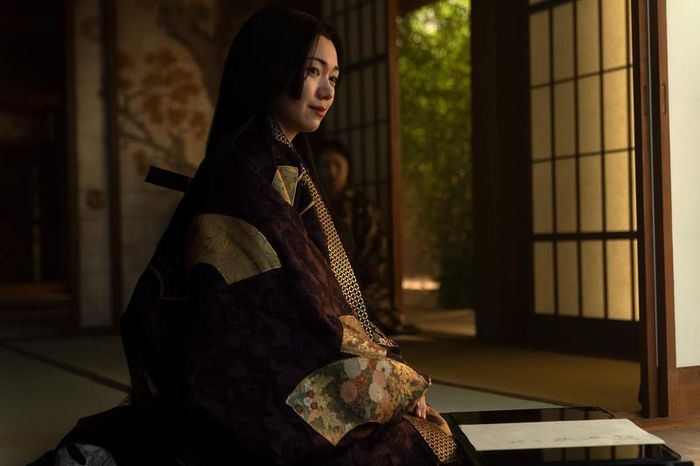
Sorry, anjinposters, FX’s adaptation of Shōgun has concluded. Toronaga reluctantly followed his fate and will now lead Japan to a new age of peace. The show’s attention to period accuracy, its well-rounded characters, its perfect episode endings, and its endless parade of Japanese character actors will be missed. The series managed to make you feel for so many characters with so many (often conflicting) motivations. Then it made you watch that person you fell in love with get beheaded.
There’s always hopes for a Shōgun season two, but none has been announced. That leaves a lot of people feeling kind of wistful behind their eightfold fence. The show was a great introduction for many westerners to the grand tradition of jidaigeki, or Japanese period pieces. If you want to delve deeper into an entire genre, there are plenty of samurai flicks to whet your appetite. But Shōgun was a book first. And the romantic, tempestuous, uncertain Sengoku era reverberates throughout Japanese literature and the work of literary weebs in the west. Here are ten books, one manga, and one video game for when you miss Toronaga and the gang.
I mean, of course you’re going to read the source material. There’s no greater pleasure for a true fan of the written word than to watch an adapted movie or TV show and quietly mutter, “That’s not how it happened in the book.”
James Clavell, a rabid individualist (and Ayn Rand stan) who was a Japanese POW during World War II, wrote a sweeping novel about duty and communal action and the nobility of the Japanese character. It then became a best seller and a critically acclaimed miniseries (twice)! May we all work through our trauma so lucratively.
If you saw the flashbacks to the previous Taiko on Shōgun and thought, Hey, what’s that guy’s deal? Who is he to Toronaga? Why does he have so many consorts?, then read this series. There are three great unifiers of Japan: Oda Nobunaga, Toyotomi Hideyoshi (Ochiba’s baby daddy), and Tokugawa Ieyasu (Toronaga). What Shōgun is to Tokugawa Ieyasu, Taiko is to Toyotomi Hideyoshi. Taiko was serialized during World War II in Japan, then compiled into books near the end of postwar occupation. An abridged translation was released in English in 1992. The book(s) tell the whole life story of Hideyoshi — from his farm-boy childhood to unifying Japan.
Junichi Saga was a doctor in a small Japanese village. His books are essentially “as told to” stories from his patients. Memories of Silk and Straw contains short essays from his oldest patients about what life was like in rural late 18th- and early 19th-century Japan. It’s a little dry, kind of a series of “I was wearing an onion on my belt, which was the style at the time” stories. But they are full of detail.
Confessions of a Yakuza is not dry. It’s wet — with blood, with riverboat gambling, with sake, and with syphilis lesions. The book covers one Yakuza boss’s rise to power, starting with being a lookout for floating craps games. It’s perfect counterprogramming to the honor-bound Shōgun: a guy living for himself. Sometimes that means prying money out of the burned hands of a victim of the 1923 Great Kantō earthquake or doing time in a prison camp after going AWOL in Manchuria. If you’re sick of duty and fate but want to stay in Japan, read this book.
Speaking of “fuck fate,” this comedic fantasy book starts with Fate playing a game with Luck. Guess who wins.
Let’s face it: Shōgun was, in many ways, a bummer. Maybe you need a palate cleanser. Enter Terry Pratchett, who could bring a silly goofy mood to even the most dire of subjects, this time endless internecine conflict and hollow revolutions. Interesting Times takes place on the Discworld, Pratchett’s long-running setting that exists to parody fantasy tropes and do thinly veiled social commentary about our more globular planet. In this book, perennial loser wizard Rincewind travels to the Agatean Empire, where orientalist cliches go to die (probably by seppuku). This random foreigner becomes pivotal in the struggle between five noble families to rule the empire. Sound familiar?
One of the best things about Shōgun is how richly realized the female characters are. It’s their story as much (if not more) than John Blackthorne’s or Toronaga’s. Out shows how few options women have under patriarchy centuries after the Battle of Sekigahara. Named Best Novel at the 51st Mystery Writers of Japan Awards, the book follows four women working the night shift at a bento factory. They try to dispose of a body, only to descend into infighting and blackmail. Even in modern Japan, a woman is still simply at war. But be forewarned: The book is intense. Well, “gnarly” was the word my friend used when she cautiously recommended it to me.
Speaking of the themes of Shōgun mapped onto contemporary Japan, Convenience Store Woman is about someone who brings a feudal level of loyalty to her part-time job at a konbini. Everyone in Keiko’s life is all like “Start a family, or at least get a real job!” But she finds comfort, structure, and purpose in making a convenience store an oasis of order and fresh egg-salad sandos. Sayaka Murata’s protagonist is unique, well-written, and what BookTok would probably describe as “autistic coded.” We all must follow our fate, even if that fate is to be a cog in the corporate machine.
If Lady Mariko’s faith was a compelling subplot for you, try the works of Shūsaku Endō. He was raised by a single mother who converted to Christianity. He often wrestled with his faith, his doubt, and his theories as to why the religion never took hold in Japan the same way it did other places. He often called Japan a “mudswamp” in which the flower of Christ could not flourish. The novel Silence (adapted into a movie by Martin Scorsese) shows what happened to the Jesuits after Tokugawa Ieyasu (IRL Toronaga) took power and worked to have Christianity suppressed in Japan.
A Life of Jesus, on the other hand, tried to make Christianity more palatable to the Japanese by humanizing and motherizing Jesus. “In brief, the Japanese tend to seek in their gods and buddhas a warm-hearted mother rather than a stern father,” he wrote. So instead of Mean Daddy God, Endō wanted readers to see Jesus and go, “That’s mother.”
Look. If you want a whole lotta content set during the Warring States period in Japan, I’ve got you. If you want a guy serving looks and luscious locks like Evil Bro Saeki, I’ve got you. If you want a lot of well-rendered interiors of Sengoku period palaces, I’ve got you. If you want a manga series that takes the uncertainty of living during the Warring States period and turns it literal with hella monsters à la Buffy, I’ve got you. If you want a story of romantic longing and enemies-to-lovers that actually works out, I’ve got you. If you want anything with the seriousness of Shōgun, look elsewhere.
If you’d like to know what happened to the Willow World after Gin got her allotment of marshland, read this book. Mineko Iwasaki was interviewed by Arthur Golden to help him research Memoirs of a Geisha. Her involvement was contingent on anonymity, but Golden named her in the acknowledgments. Not cool! He also (according to Iwasaki) made up much about the world of geisha in Kyoto. Iwasaki sued Golden for defamation and breach of contract, then wrote her own autobiography with the help of Rande Gail Brown.
Pokémon Conquest
Not a book! Pokémon Conquest is the only game that had the (Poké)balls to ask, “What if the great warriors of Japanese history had to fight their battles with adorable critters instead of humans?” You play the daimyo of the fictional region of Aurora. If you conquer all of Japan, you will release legendary Pokémon and, idk, restore order to the Warring States and bring a peace unfelt for decades. But more importantly, legendary Pokémon. Meet the heroes of Japanese history and battle their Pokémon! Toronaga’s main is Aggron. How could you not want to play that?


